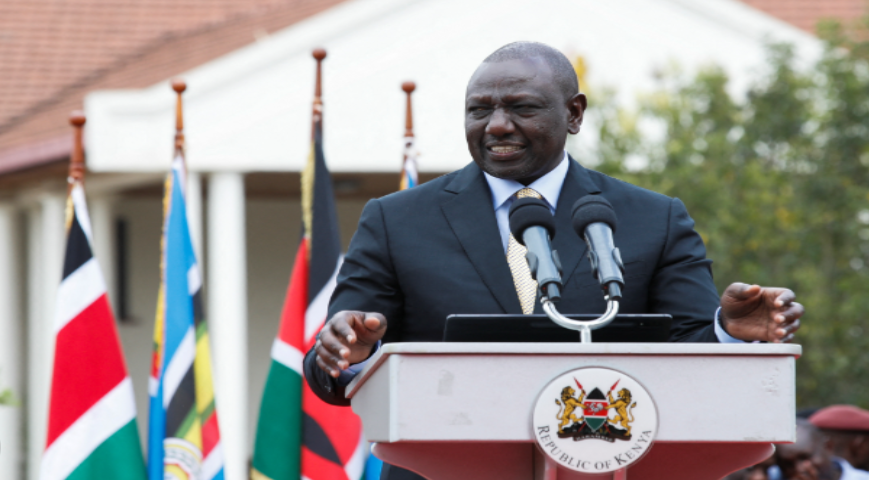President William Ruto arrived in Apulia , southern Italy, for the 50th G7 meeting, joining Joe Biden and Pope Francis, who are listed as the main speakers.
He is expected to address the summit later on today.
The G7, comprising Canada, France, Germany, Italy, Japan, the United Kingdom, the United States, and the European Union, will address critical global issues related to international cooperation.
In a statement on X, the State House stated that other African heads of state attending the summit included the President of Algeria, Egypt, and Tunisia.
“Also at the summit are Presidents Joe Biden of the United States, Mohammed bin Zayed (UAE), Recep Tayyip Erdoğan (Turkey), Kaïs Saïed and African Union Chair (Tunisia) and Mohamed Ould Ghazouani (Mauritania), who is also the African Union chairperson.”
Did you read this?
Others are Presidents Luis Inácio Lula da Silva (Brazil), Javier Milei (Argentina), Abdelmadjid Tebboune (Algeria), King Abdullah II (Jordan) and Indian Prime Minister Narendra Mondi.
The summit will be attended by United Nations Secretary-General Antonio Guterres, African Development Bank President Akinwumi Adesina, World Bank President Ajay Banga, International Montero Fund Managing Director Kristalina Georgieva, and OECD Secretary-General Mathias Cormann.
G7 countries share common values such as political pluralism, liberal democracy and representative government.
At the G7 Summit, President Ruto will emphasize the importance of involving African countries in solving global challenges such as climate change, peace and security, and war and other conflicts.
He will highlight Africa’s potential for green industrialization, digital revolution, and innovation and cite the continent's huge renewable energy reserves.
These renewable energy resources can help many developed countries achieve their Netzero targets by 2050.
Further, he will outline AU reforms to enhance trade and development, peace and stability, and greater global participation.
President Ruto has consistently called for reforming the international financing architecture, including multilateral development banks, to ensure inclusivity and fair representation.
He has stressed the need to democratize the boards of multilateral development banks, ensuring that all members have an equal say in their management.
The current international financial architecture, the President has pointed out, “is faulty and unfair and









